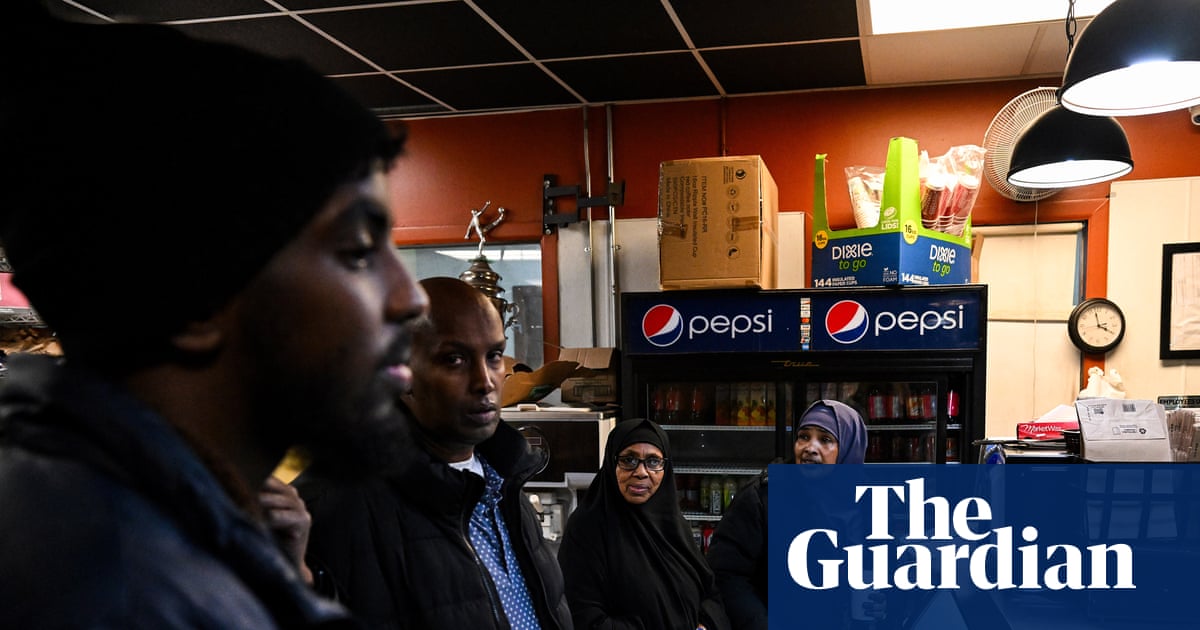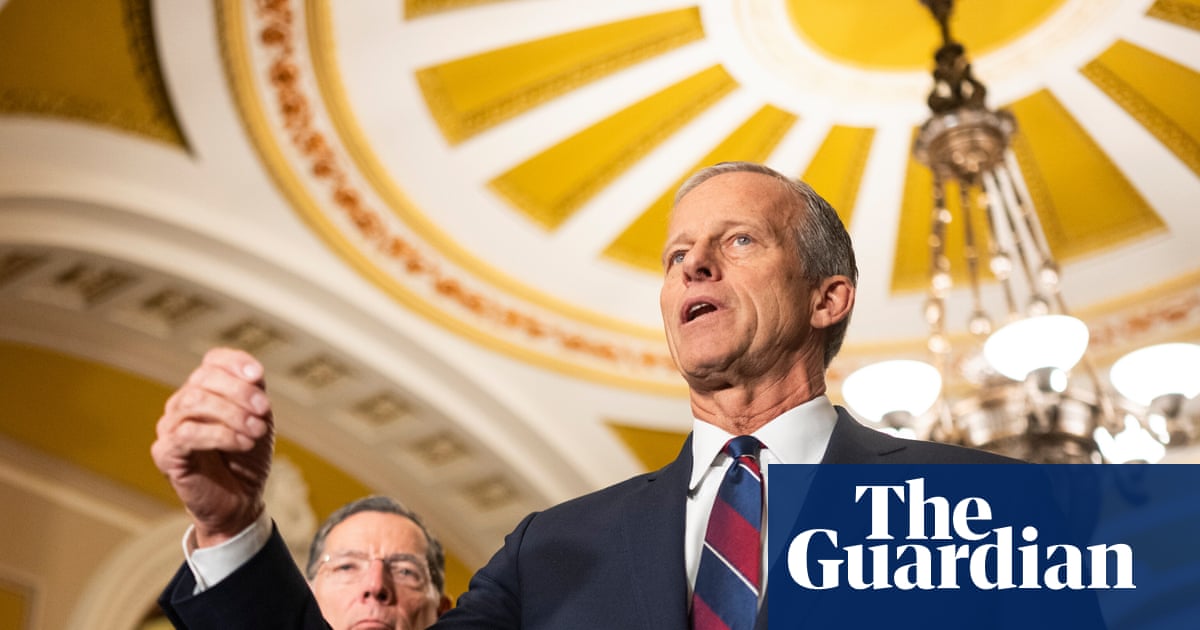Donald Trump’s 2024 campaign strategy leaned heavily on two sources of grievance among the Maga base. The first was the rising cost of living, propelled by the sharp burst of inflation that peaked at 9% a year in July 2022. Though inflation had receded to 2.7% by election day, frustration over prices convinced many voters that Trump would be a superior steward of the economy. The other theme was race.
The strategy won the presidency. Then, Trump made a mistake: focusing relentlessly on hostility towards immigrants and the diverse citizens of urban America, the president pretty much ignored – nay, worsened – his supporters’ economic woes. In elections earlier this month, US economic grievances came back to bite him. Pummeled by voters, Trump is now trying to recover his economic narrative. But it may be too late.
Ever since Trump launched his first successful run at the presidency in 2016, he has branded himself as a champion of a beleaguered white US working class that feels out of place in an increasingly diverse nation. In 2016, he branded Mexican immigrants as rapist thugs. In 2020, he suggested white suburban women needed his protection from violent urban minorities. In 2024, he kicked off the last week of his campaign at Madison Square Garden in New York City, promising to launch the “largest deportation program in American history to get these criminals out” and to get critical race theory “the hell out of our schools”.
The focus on race probably fits Trump’s worldview better. When he was born, about 10% of Americans were non-white, compared to about 40% today. In his heart, he probably agrees that the beloved white America of his youth is under siege. He shares the fearful gaze with which some of his base look upon the multi-ethnic pot that urban America has become.
Politically, Trump’s emphasis on race is not misplaced. There is abundant evidence that white Americans’ ethnic hostility has played a key role shaping American politics and its institutions. Work years ago by the economists Alberto Alesina, Edward Glaeser and Bruce Sacerdote concluded that racial barriers – fear, contempt, mistrust – are a big reason the United States did not develop the rich safety net that the more ethnically homogeneous democracies of western Europe built to protect their people from economic calamities. Indeed, when he started building the American safety net, FDR tailored New Deal programs to exclude Black Americans in order to get white southern Democrats onboard. On the day he signed the Civil Rights Act into law, President Lyndon Johnson, a southern Democrat, adroitly observed to his aide Bill Moyers: “I think we may have lost the south for your lifetime – and mine.”
In any event, ethnic resentment has become the central focus of Trump’s domestic policy. The Department of Homeland Security’s violent deportation tactics and the deployment of the national guard to big cities (not coincidentally run by Democrats) are proposed as strategies to combat rampant immigrant crime. The high-profile attacks against universities for their diversity, equity and inclusion (DEI) programs are justified as a defense of white Americans from unjust policies depriving them of their due. Federal government agencies have been ordered to do away with all efforts to promote DEI. Cities, the most ethnically and culturally diverse ecosystems in America, are portrayed as dystopian cauldrons of unrest.
Trump seems not only to have forgotten his promises on the economy, he also appears to enjoy stoking Americans’ economic anxieties. His array of tariffs against friend and foe has slowed the economy, stalling employment growth while it raises the prices of key necessities. His decision to end subsidies for health insurance plans under Obamacare will drastically raise premiums for millions of Americans. And there is probably no better strategy than ending Snap food assistance payments – as he did during the government shutdown–to deepen the economic misery of the poor.
Many of his voters are increasingly unhappy. Last week the University of Michigan reported a sharp decline in its index of consumer sentiment to near its historical lows. Other than people with very large equity portfolios enjoying the ride in tech stocks, everybody is feeling more miserable. So it is perhaps not surprising that voters’ economic grievances are now coming back to bite him. Trump’s approval rating is tanking, driven down most precipitously by disapproval of his handling of inflation, the economy and employment.
The special elections earlier this month in which Democrats swept the races for mayor of New York City and governors of Virginia and New Jersey, comfortably pushing through a redistricting plan in California that may cost Republicans five seats in the House – provided a sharp reminder of what is at stake. Discontent is seeping beyond Blue America and on to Trump’s turf. On 4 November it translated into Democratic wins in races for state legislatures, county executives and other offices in redder constituencies from Mississippi to Georgia to Virginia and Pennsylvania.
On Truth Social Trump was adamant that “TRUMP WASN’T ON THE BALLOT, AND SHUTDOWN, WERE THE TWO REASONS THAT REPUBLICANS LOST ELECTIONS TONIGHT.” But he does seem aware of the political fallout from his economic policies: on Friday, he tried to engineer lower food prices by ending tariffs he had imposed, he has suggested a much-ridiculed 50-year mortgage to address housing affordability and floated a $2,000 tax rebate funded by the tariffs Americans have already paid.
While Trump may have changed tack, in an echo of what happened to Joe Biden, voters living the reality of a moribund economy may find it harder to forget Trump claiming “we have no inflation” especially as Democrats replay that message again and again in their fight to recover the House in midterm elections next year.
Racial hostility is, for sure, a central driver of American politics. Its importance will probably grow as a shrinking white share of the population leads a scared Maga coalition to circle the wagons ever more tightly. But it seems evident today that stoking Americans’ racial grievances will not be enough for Trump to cling to power. He had to deliver on the economy too. And he hasn’t.

 German (DE)
German (DE)  English (US)
English (US)  Spanish (ES)
Spanish (ES)  French (FR)
French (FR)  Hindi (IN)
Hindi (IN)  Italian (IT)
Italian (IT)  Russian (RU)
Russian (RU)  3 weeks ago
3 weeks ago
























Comments